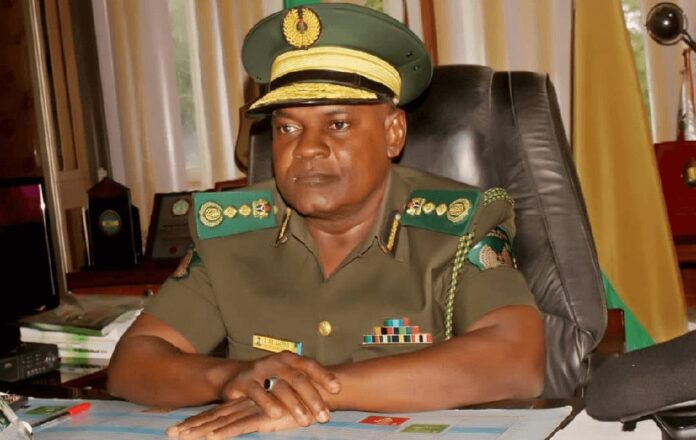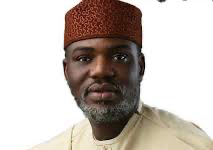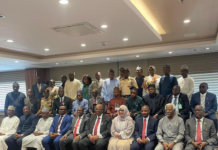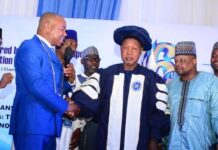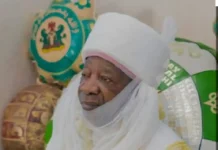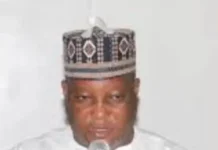Ibrahim Goni’s Monumental Strides in Transforming the National Park Service By Yusuf Issa An-Nuphawi
The avalanche of human civilization takes resources to sustain the modern way of life. Whilst the survival of man is anchored on the ability to exploit flora and fauna –even amidst scarcity of food resources resulting from climate instability –we must allow the ecosystem to survive for the sustainability of human traits. The experiences throughout human history have shown that man, as the most intelligent being on earth, has the responsibility to live in harmony with the natural world, protecting it from damage and destruction.
The protection of plants and animals by man to ensure environmental sustainability has long been recognised as fundamental by governments and corporate institutions across the globe. In Nigeria, one of such efforts towards conservation of wildlife and plants was the Military Decree 36 of 1991 which established Nigerian National Park Service(NPS), demonstrating the Federal Government’s understanding of the need to preserve, enhance, protect and manage vegetation and wild animals for a sustainable ecosystem.
Since it was established about thirty-one years ago, the NPS has evolved with time and circumstance leading to the establishment of seven National Parks, occupying a total of 22,185 sq km conservation area, which represents 2.5% of the total landmass of the Country (923.74sq km). The conservation areas are eco-treasures of the country spread in all the ecological zones in Nigeria, including Chad Basin (Borno/Yobe), Cross River(Cross River), Gashaka-Gumti (Adamawa/Taraba), Kainji Lake (Niger/Kwara), Old Oyo (Oyo), Kamuku (Kaduna) and Okomu (Edo).
Given the nature of its operations which are limited to the conservation areas and parks, quite a number of Nigerians were not familiar with the economic importance of the National Park Service to the Country until as recent as 2017 when President Muhammadu Buhari appointed Dr. Ibrahim Musa Goni as the Conservator-General of the Service. He rose through ranks in the Service, since 1983, to emerge as the Conservator-General.
The President’s choice of Dr. Ibrahim was not far from the understanding that leadership modernisation leads to institutional modernisation and economic development by extension. His emergence as a modern Conservator-General was a necessary condition for intensive development at the NPS. His performance in four years at the helms of the Service has been wonderful, beginning with the classification of the Service as a Para-Military Organisation under his watch.
The new status of the Service as a Para-Military Organisation, a domain in which it truly belongs, positioned it better to deal with insecurity dynamics around our parks. There is now a social prestige attached to being a Park Ranger as men and officers of the National Park Service have had their self-esteem, spirit and morale strengthened up to protect the Nation’s eco-treasures within the confines of the law.
To demonstrate this commitment, recently, the Service in collaboration with other security agencies of the government began to wage war against criminals, leading to decimating bandits and other unscrupulous elements trying to make our national reserve areas their safe heaven. To be specific, several bandits hiding under the sheds of Kainji Lake National Park were neutralized and over twenty illegal loggers were arrested and being prosecuted for various offenses.
With Over eighty percent of the Service personnel trained in paramilitary drills, jungle and survival techniques, terrorism and counter-terrorism, use, handling, and maintenance of firearms, our national reserve areas and parks which are economically meant for Eco-tourism and preservation of flora and fauna will remain an Armageddon for criminal elements, including bandits, kidnappers and terrorist trying to make the reserved forests their abode.
Read Also:
To further strengthen the Federal Government’s ongoing fight against insecurity, the National Park Service under the watch of Dr. Ibrahim has recently created ten additional National Parks to save the remaining green cover in the Country for meaningful purposes such as education, research, and tourism development while denying the criminals a hiding place in our forests.
As the NPS evolves with time, the law establishing the Service needed to be reviewed. And the leadership of the Service had proactively initiated the process to give the organisation a law that will stand the test of time. Recently, the Service held a stakeholder’s workshop on review of National Parks regulations to enable it to operate efficiently as a para-military agency.
Nigerian locals and indeed the National Parks and Reserves host communities have shown ignorance of the consequences of indiscriminate killing of wildlife animals for consumption and illegal cutting of economic trees and other floras to the ecosystem and sustainable climate, the Service has more than ever before delivered massive sensitisation campaign against consumption of bush meat to prevent Zoonotic diseases such as Lassa fever, Covid-19 and a host of other animal transmitted diseases troubling the world today.
As part of his resolve to make the host communities take the ownership of the National Parks and Reserves, the Service under the current leadership has outstanding records of corporate social responsibility, supporting the communities through the building of health clinics, provision of essentials drugs, and hospital equipment and primary schools.
The Service has also provided vocational training and distribution of starter packs to members of the communities. To further increase awareness and strengthen conservation education in the communities, the Service has magnanimously provided education materials to various primary and secondary schools and established over 238 school conservation clubs.
Good infrastructure and working environment enhance the productivity of personnel and Dr. Ibrahim Goni recognizes this. He has made a giant stride in the face lifting of the Corporate Headquarters of the Service in Abuja with state-of-the-art facilities and technologies such as Unmanned Aerial Vehicles (UAVs)/ cyber trackers that enable the effective and efficient performance of the men and officers. No wonder, the Service has been scored 70.5% by The Anti- Corruption and Transparency Unit (ACTU) for substantial compliance with deployment of ethics in conduct and discharge of duties.
Despite these feats within four years of his first tenure as the Conservator-General of the National Park Service, Dr. Ibrahim Musa Goni has tasks ahead of him to finish the good work he has started if given the opportunity by President Muhammadu Buhari to serve another four years. It is a known desire of President Buhari to bring an end to the perennial farmer-herder conflicts especially common to communities around the Parks as a result of the lack of designated cattle routes and functional grazing reserves. The Service is now at the forefront of dealing with these issues and building peace among the dwellers of the communities neighbouring the Parks.
In line with the Federal Government’s quest to increase revenue generation towards funding of infrastructure deficits in the country, the National Park Service under the leadership of Dr. Ibrahim renewed its commitment to making the Nigerian Parks and Reserves world’s destinations for ecotourism with the potential of attracting huge revenue and foreign exchange from international tourists.
As these transformations manifest, no doubt it has and will continue to impact positively on Nigeria’s ecosystem towards preserving, enhancing, managing, and protecting Nigeria’s vegetation and wild animals in line with the NPS mandate.
Yusuf Issa An-Nuphawi, writes from Abuja.

